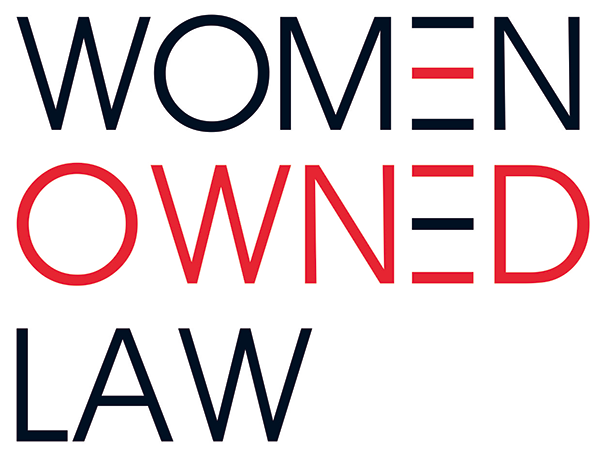By Kei S. Tolliver| Founder | Kei S. Tolliver Law, LLC
After nearly two decades in the start-up space, I finally pulled the trigger and started my own solo law practice 4 years ago. Having been closely involved in start-ups, I knew the fundamental process of starting a business. However, what I didn’t know and had never experienced firsthand were the well documented challenges female founders face. Moreover, as I started to assist my own start-up clients, I’ve come to realize how real these challenges are and how educating myself on these challenges can help me (and other female founders) tackle them.
Fundraising
It is well-documented that ventures with female founders raise significantly less venture capital (VC) than those with male founders. According to data published by Pitch Book and reported by Fortune, of $130 billion total VC funds raised in 2018, female-founded start-up accounted for a mere 2.2% (the number drops to 0.2% for women of color). Similarly, female representation in the VC eco-system is not that much better: women represent less than 10% of partners in VC firms, 15% of executives and senior level managers in banking and securities industries, and 16% of senior M&A partners in big law firms. And as The New York Times reports, a higher concentration of women in VC results in more funding for women-led start-ups. While progress is incredibly slow, there are many efforts addressing the gender gap in fundraising, such as a rising number of VC funds specifically supporting female-led start-ups and investment portfolios focusing on female-led businesses, including law firms.
Equal Pay
I do not need to reiterate the existence of the gender pay-gap (but in case you are not aware, on average, women make 79 cents for every dollar men make). While founders typically are not W2 employees, as they start hiring employees, they will likely be faced with issues around gender equity in employee compensation. I recently learned that we, women founders, may be inadvertently contributing to the pay gap. There is evidence that women tend to be hesitant to ask for a salary raise and to undervalue their accomplishments (guilty!). What I didn’t realize was the chain reaction this creates – if you, as the person in a managerial position, settle for lower rates, it not only impacts your pay, but you could be lowering the compensation ceiling for your entire team. This was eye-opening to me and certainly changed my mindset around compensation negotiation as I am not only setting an example for myself but for an entire team.
Gender, Cultural & Class Bias/Discrimination
I recently read one of the most candid articles by the co-founder of the successful start-up, Misfit Foods. In the article, she opens up about her life as an entrepreneur, the gender/cultural/class bias she faced, and the toll that being a founder takes on one’s physical and mental health. In terms of gender, cultural and class bias, she describes how some assumed she was the male co-founder’s assistant, how people always asked her co-founder, and not her, all the questions in meetings, and how she was told her speech pattern suggested low-confidence. Although I am fortunate that I rarely face blatant bias or discrimination, I do admit I always have, in the back of my mind, a lingering doubt that others are questioning my credibility. These are just a few examples of the subtle yet widespread gender and other biases female founders encounter, on top of the more egregious harassment and discrimination that resulted in the #MeToo movement. However, today there are more resources than ever before to help female founders and professionals combat these gender imbalances and push the equity needle forward.
“Work/Life Balance”
I do not like to use the term “work/life balance” as running my firm and serving my clients are as critical to my life as my personal obligations. That being said, the “work/life balance” conundrum is particularly wearing for female founders (and female executives). I went back to work when my daughter was 4 months old, and started my firm 7 months later. At that time, I was also serving on the board of directors of a publicly-traded company. Managing my time came relatively easy, perhaps because coming from start-up world, I was used to wearing many hats and managing multiple priorities (plus I had the support of my family and friends, who I cannot credit enough for being able to do what I do today). The difficult aspects of returning to work were around more routine things, such as breastfeeding an infant, which involves constant pumping. I had no difficulty at my office, however, all day meetings offsite presented an unexpected challenge. Often, a private or unoccupied room was none existent or scarce, so I had to find a relatively clean, not busy bathroom to pump. In addition, there were usually not enough breaks during marathon meetings (especially the board meetings of a public company) to allow for frequent pumping. Most of the time, I was the only (or one of a very few) female attendees (most were men in their 50s and 60s) so I did not feel comfortable openly discussing this issue.
While it may seem minor, this is one example of the many systematic challenges that hinder the ability of female founders and executives to go back to work or maintain their professional and personal lives at the same time. As women entrepreneurs and leaders, we’re in the unique position of having to ask for (and demand if necessary) certain accommodations that may have been overlooked until now. We chart this path so that other women, and those who come after us, can fulfill their professional and personal needs with more ease.
So Why Do It?
Despite the challenges I shared, being a founder comes with many rewards. These include but are not limited to: the ability to develop emotional and financial independence, being able to call your own shots and determine the direction of your own business, and scheduling flexibility that allows for dedication to both your professional and personal lives. More importantly, we are in the position to be able to empower the next generation of women entrepreneurs in the law and be a catalyst for creating a better eco system for women lawyers generally. Furthermore, by educating ourselves on the real challenges women founders face, collectively, we can seek solutions that further advance women entrepreneurs as a whole.
Kei S. Tolliver, Esq. is the Founder of Kei S. Tolliver Law, LLC, a law firm based in Washington, D.C., which serves entrepreneurs, start-ups, non-profits and Japanese communities.

